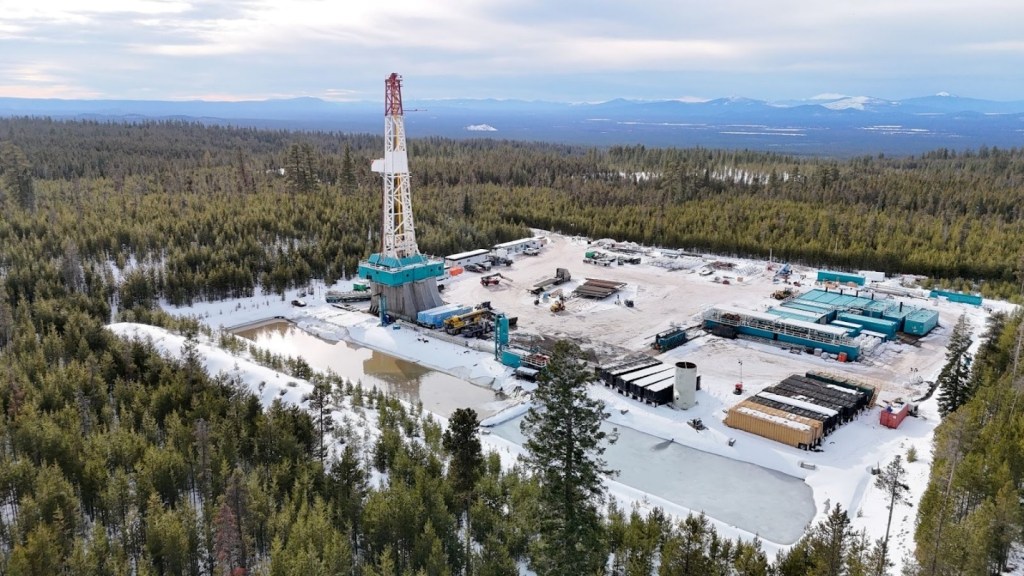Mazama Energy, a pioneering startup in the geothermal sector, is making significant strides in harnessing the Earth’s super-hot rocks to provide continuous, emission-free power. With backing from Khosla Ventures, Mazama is at the forefront of developing advanced geothermal technologies that promise to revolutionize the energy landscape.
The Promise of Super-Hot Rock Geothermal Energy
Traditional geothermal energy taps into the Earth’s heat by accessing reservoirs of steam or hot water near the surface. However, these resources are geographically limited and often insufficient for large-scale power generation. In contrast, super-hot rock geothermal energy involves drilling deeper into the Earth’s crust to reach temperatures exceeding 400°C (752°F). At these depths, the heat is abundant and virtually inexhaustible, offering a consistent and reliable energy source.
Mazama Energy’s approach focuses on creating enhanced geothermal systems (EGS) by injecting water into deep, hot rock formations. The water absorbs the intense heat, returns to the surface as steam, and drives turbines to generate electricity. This method not only expands the potential for geothermal energy beyond traditional hotspots but also provides a sustainable solution for 24/7 power generation.
Technological Innovations and Challenges
Developing super-hot rock geothermal systems presents several technical challenges, primarily related to drilling technology and materials that can withstand extreme temperatures and pressures. Mazama Energy is investing heavily in advanced drilling techniques and high-temperature-resistant materials to overcome these obstacles. Their research and development efforts aim to make deep drilling more efficient and cost-effective, thereby accelerating the deployment of EGS projects.
One of the critical innovations in this field is the use of specialized drilling fluids and equipment designed to operate under extreme conditions. These advancements are crucial for maintaining the integrity of the wellbore and ensuring the longevity of the geothermal system. Additionally, Mazama is exploring the integration of artificial intelligence and machine learning to optimize drilling operations and monitor system performance in real-time.
Environmental and Economic Impacts
The environmental benefits of super-hot rock geothermal energy are substantial. Unlike fossil fuels, geothermal energy produces minimal greenhouse gas emissions, contributing to the reduction of the carbon footprint associated with electricity generation. Moreover, geothermal plants have a small land footprint compared to other renewable energy sources, preserving natural habitats and reducing land use conflicts.
Economically, the development of EGS has the potential to create numerous jobs in drilling, engineering, and plant operations. The scalability of geothermal energy can also lead to more stable electricity prices, as it is less susceptible to the price volatility associated with fossil fuels. Furthermore, the ability to provide baseload power makes geothermal energy a valuable complement to intermittent renewable sources like wind and solar, enhancing the overall reliability of the power grid.
Industry Momentum and Future Prospects
Mazama Energy is not alone in its pursuit of advanced geothermal solutions. Other companies, such as Fervo Energy and XGS Energy, are also making significant investments in this area. For instance, Fervo Energy secured $206 million in financing to develop a massive geothermal power plant in Utah, aiming to produce 100 megawatts of electricity in its initial phase. Similarly, XGS Energy partnered with Meta to build a 150-megawatt geothermal power plant in New Mexico, highlighting the growing interest from tech giants in sustainable energy solutions.
The increasing demand for data centers, driven by the proliferation of cloud computing and artificial intelligence, has further underscored the need for reliable and sustainable power sources. Geothermal energy, with its ability to provide continuous power, is well-suited to meet this demand. According to an analysis by the Rhodium Group, advanced geothermal power could supply nearly two-thirds of new data center demand by 2030, potentially quadrupling the current geothermal capacity in the U.S.
Conclusion
Mazama Energy’s efforts to tap into super-hot rocks represent a significant advancement in the quest for sustainable and reliable energy sources. By overcoming technical challenges and leveraging innovative technologies, Mazama and its peers are poised to transform the energy sector. As these projects progress, they hold the promise of delivering 24/7 power with minimal environmental impact, contributing to a cleaner and more resilient energy future.



